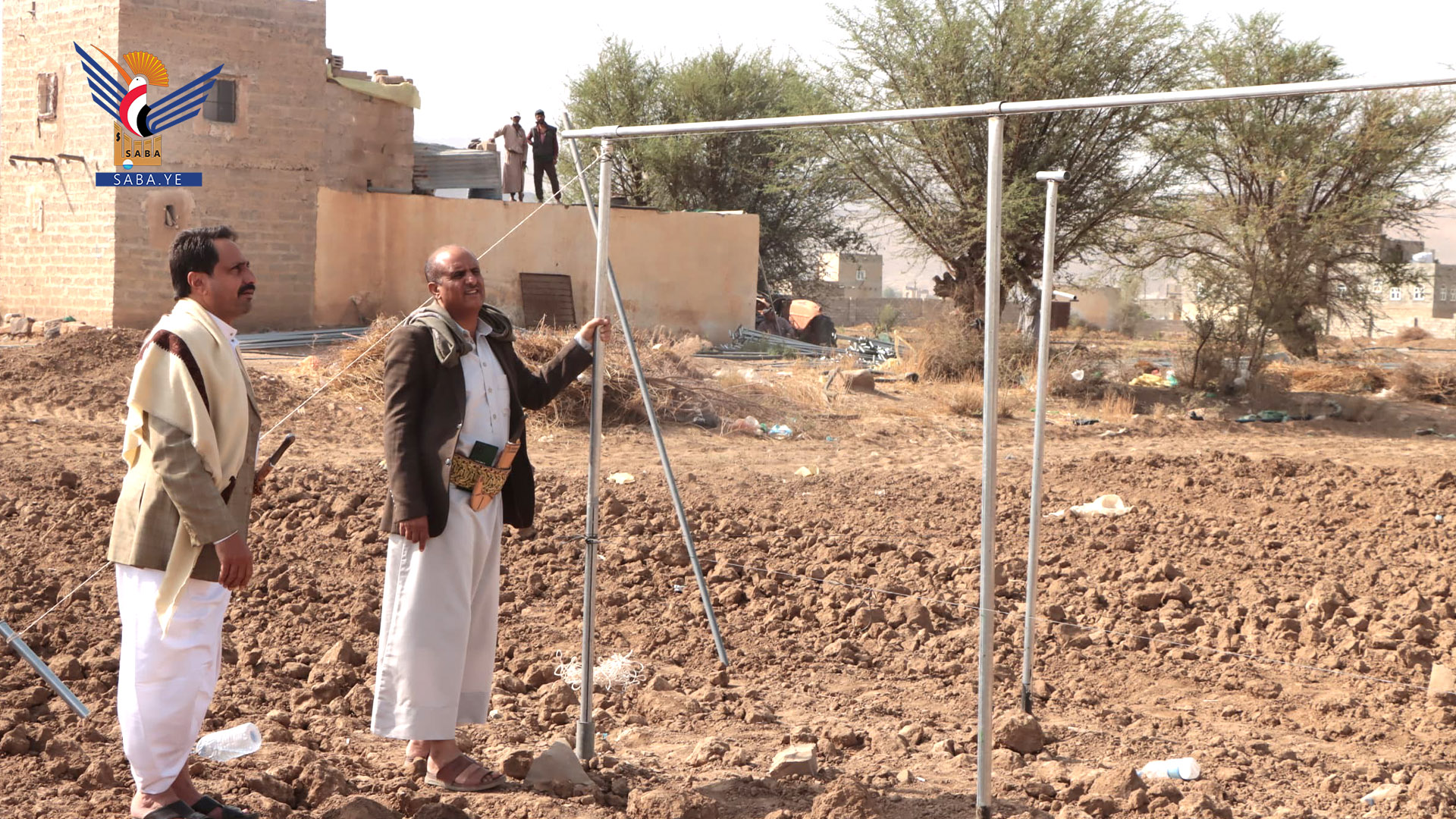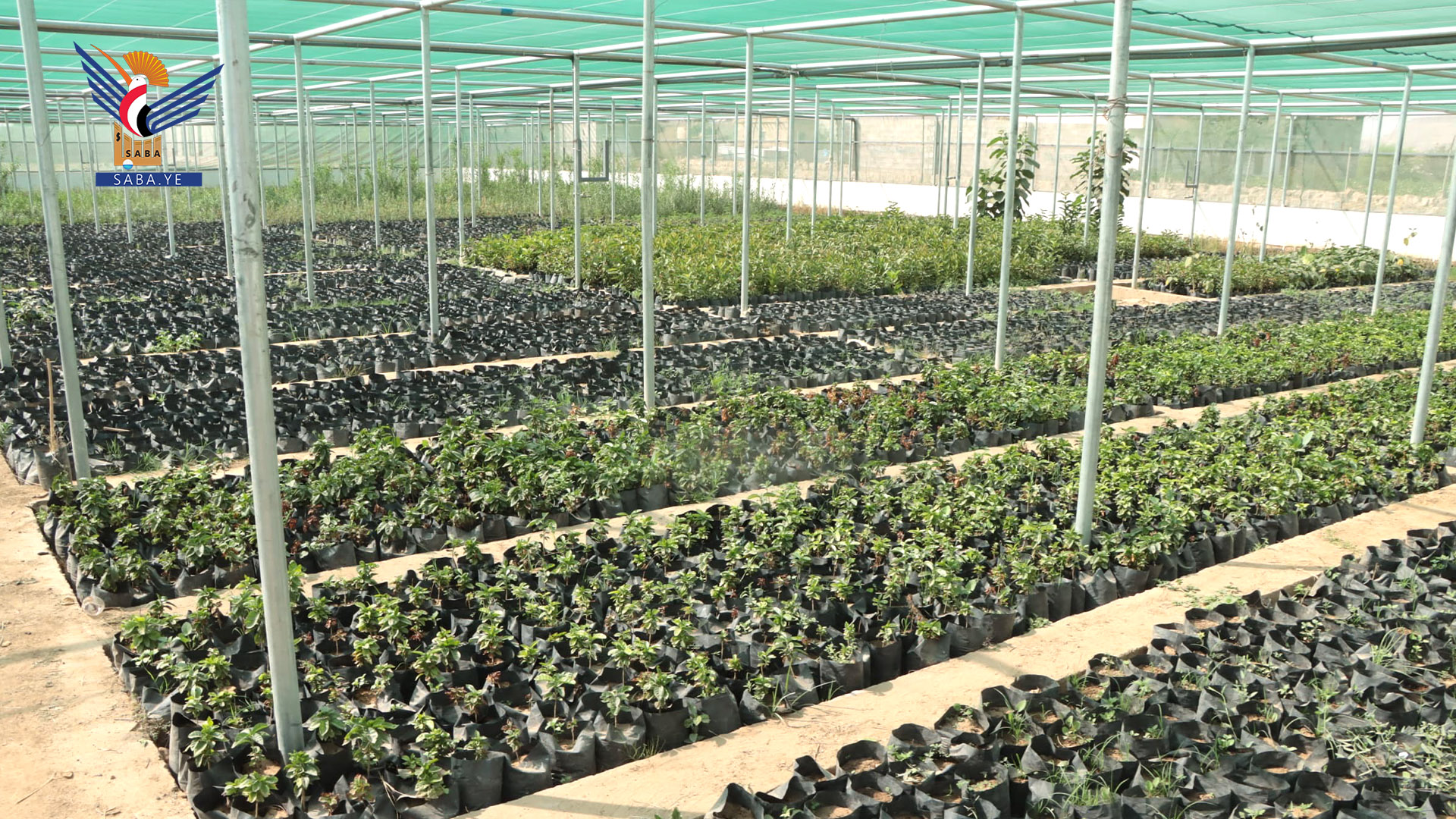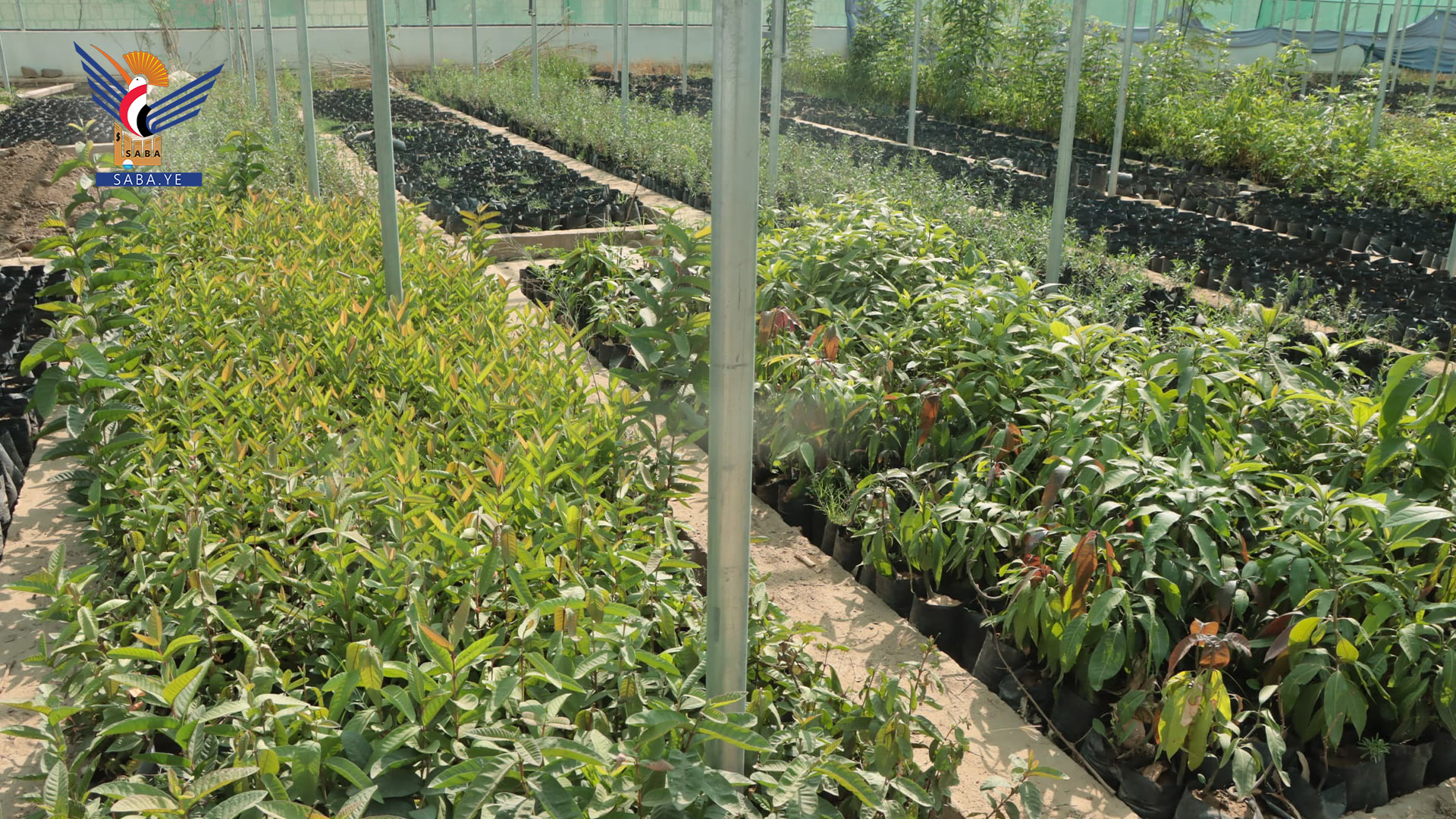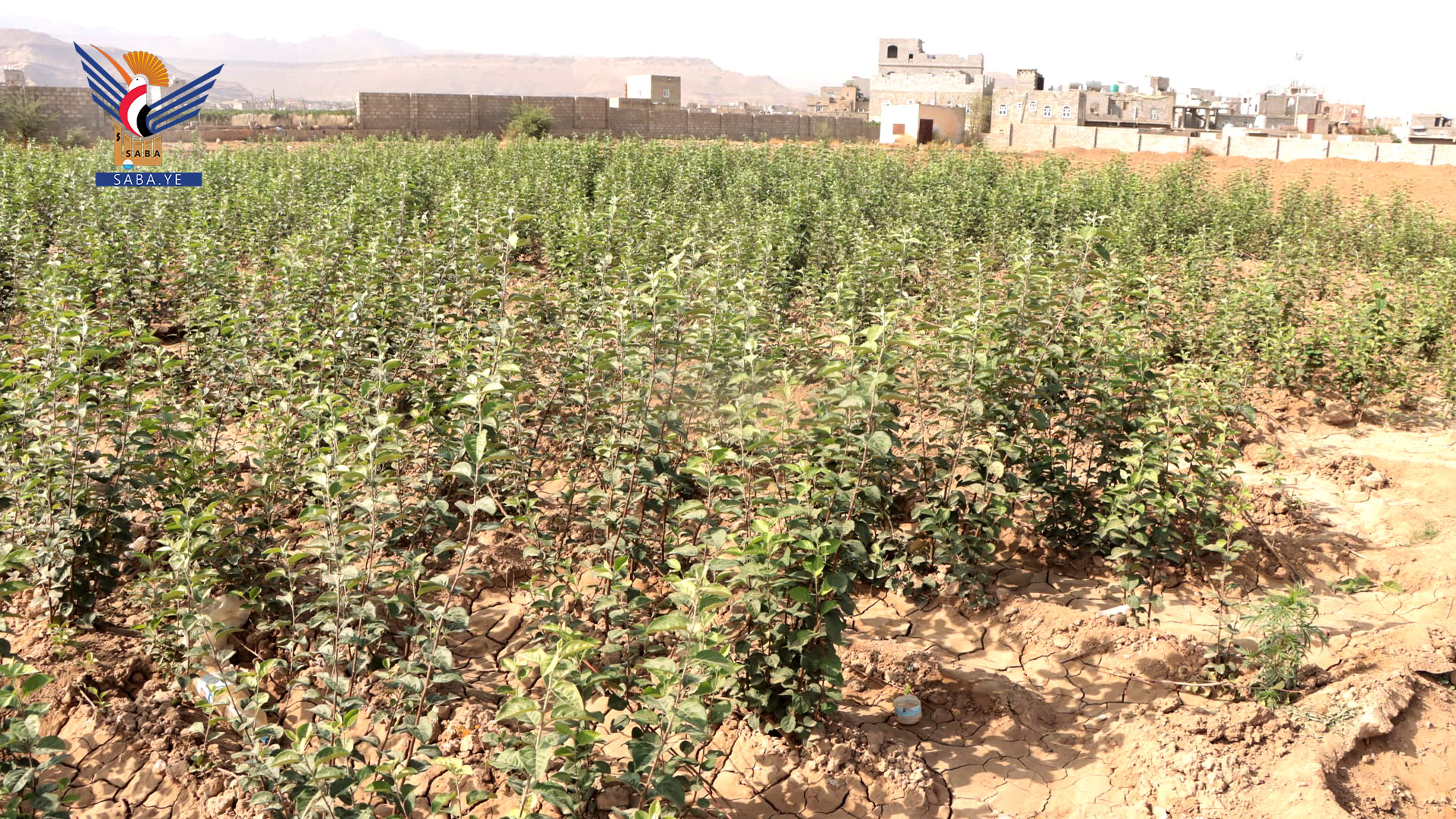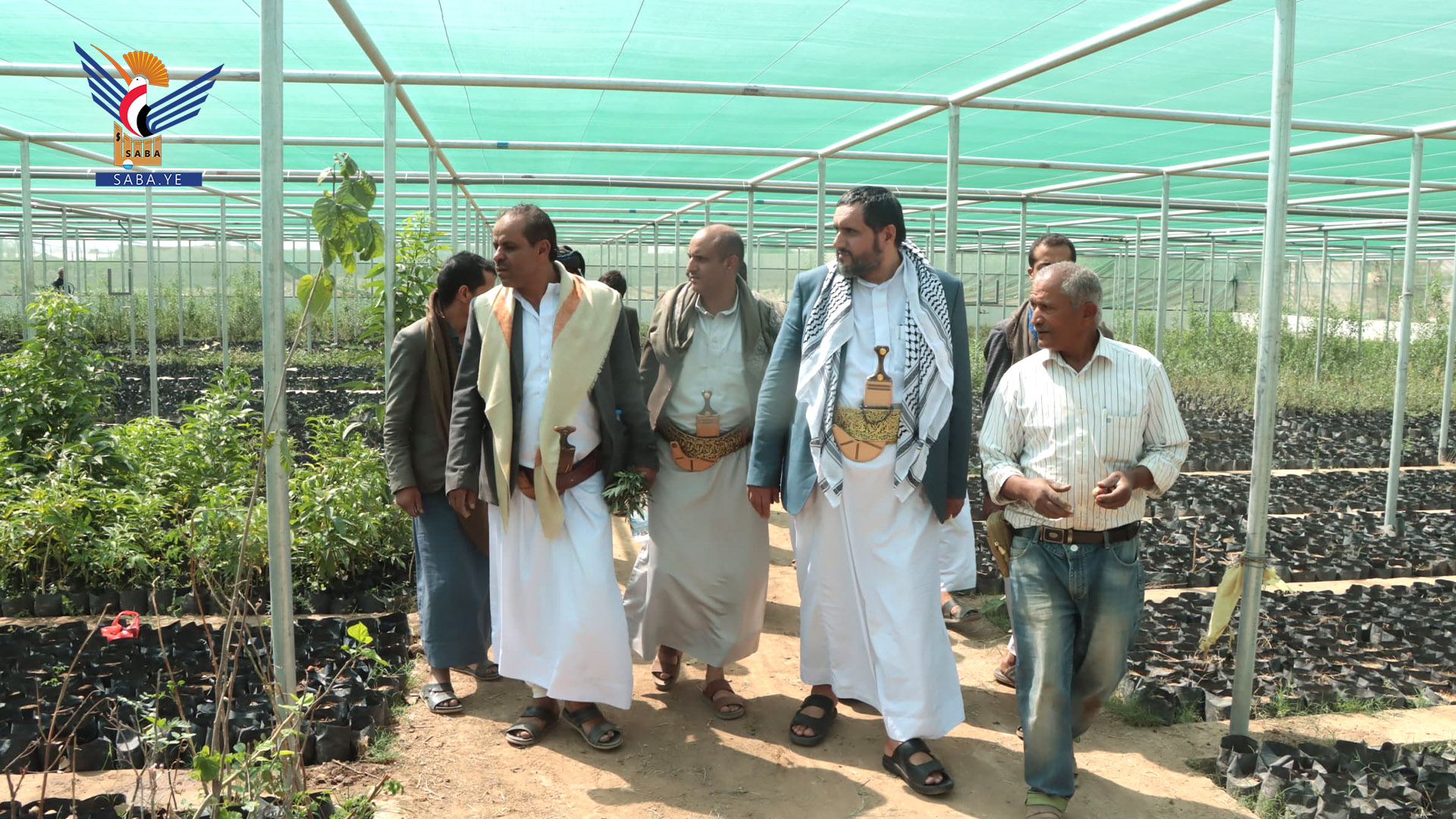
Sana'a - Saba:
Sana'a Governor Abdulbasit Hadi and the Secretary-General of the Local Council, Abdulqadir Al-Jilani, inspected on Saturday the progress of work at Al-Hatarsh Nursery for agricultural seedling production in Bani Hashish District, following its rehabilitation.
Hadi and Al-Jilani reviewed the completed work and the efforts made to rehabilitate the agricultural nursery and reactivate its operations, including the drilling and operation of two water wells powered by solar energy systems. They emphasized the nursery's role in producing agricultural seedlings, as it is the largest and most important nursery in the governorate, spanning over eight hectares.
They were briefed by the governorate's agricultural sector official, Engineer Ali Al-Qiri, on the progress in cultivating seedlings of apples, almonds, grapes, carob, and moringa.
The officials highlighted the reclamation of more than 120 plots of land in the nursery and the establishment of irrigation channels, in addition to reactivating the greenhouse facilities, which had been inactive since 2012 due to the drying up of its water wells. They noted that 20,000 apple seedlings and tens of thousands of other fruit seedlings, such as ambarella and various types of almonds, have been produced.
Al-Qiri affirmed that the operation of the two artesian wells would enhance the nursery's production capacity and diversity, including seedlings, grains, and vegetables.
During the visit, Governor Hadi praised the work carried out in cultivating various types of seedlings. He urged doubling efforts to maximize the use of the wells for irrigation and to better utilize the nursery's agricultural space for the benefit of the agricultural sector.
Hadi stressed the local authority's commitment to establishing a permanent source for producing diverse seedlings to cover all districts and rural areas of the governorate.
Sana'a Governor Abdulbasit Hadi and the Secretary-General of the Local Council, Abdulqadir Al-Jilani, inspected on Saturday the progress of work at Al-Hatarsh Nursery for agricultural seedling production in Bani Hashish District, following its rehabilitation.
Hadi and Al-Jilani reviewed the completed work and the efforts made to rehabilitate the agricultural nursery and reactivate its operations, including the drilling and operation of two water wells powered by solar energy systems. They emphasized the nursery's role in producing agricultural seedlings, as it is the largest and most important nursery in the governorate, spanning over eight hectares.
They were briefed by the governorate's agricultural sector official, Engineer Ali Al-Qiri, on the progress in cultivating seedlings of apples, almonds, grapes, carob, and moringa.
The officials highlighted the reclamation of more than 120 plots of land in the nursery and the establishment of irrigation channels, in addition to reactivating the greenhouse facilities, which had been inactive since 2012 due to the drying up of its water wells. They noted that 20,000 apple seedlings and tens of thousands of other fruit seedlings, such as ambarella and various types of almonds, have been produced.
Al-Qiri affirmed that the operation of the two artesian wells would enhance the nursery's production capacity and diversity, including seedlings, grains, and vegetables.
During the visit, Governor Hadi praised the work carried out in cultivating various types of seedlings. He urged doubling efforts to maximize the use of the wells for irrigation and to better utilize the nursery's agricultural space for the benefit of the agricultural sector.
Hadi stressed the local authority's commitment to establishing a permanent source for producing diverse seedlings to cover all districts and rural areas of the governorate.

